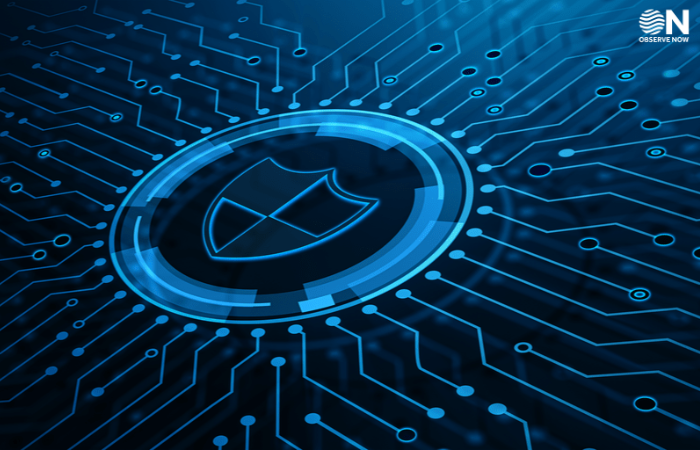The Rise of Cybersecurity Start-ups: Innovations Shaping the Industry in 2025

India is at a point where AI (Artificial Intelligence), ML (Machine Learning), automation, and blockchain are becoming part of daily operations across industries. While this opens up new opportunities, it raises a critical question—how secure is this digital shift? Cyber threats are not just occasional disruptions anymore; they’re hitting businesses hard. According to a study, 44% of security leaders have faced data breaches costing over $500,000 in the past three years, and for more than 33%, the damage has crossed $1 million. This demands a growing need to strengthen the security frameworks to stay ahead rather than just react to the risks. In response, India’s cybersecurity start-ups are bringing fresh perspectives to the table. Whether AI-powered threat detection or blockchain-driven security, these companies tackle vulnerabilities with innovative, tech-first approaches.
Start-ups set a new wave
Start-ups are a linchpin in strengthening security across healthcare, automotive, finance, and infrastructure industries. Their success comes from their potential to innovate alongside the digital shift, tackling emerging threats with advanced technologies. To begin with, AI is being leveraged in cybersecurity to identify vulnerabilities, detect anomalies, and respond to threats with enhanced speed and precision. For example, when an anomaly is detected—such as a sudden transfer of large funds from an unusual location—it triggers an automated risk assessment, either flags the transaction for review or temporarily blocks it until verified. Beyond this, Generative AI (Gen AI) transforms security strategies by simulating complex attack scenarios. This approach helps organizations evaluate their defenses, fine-tune incident response plans, and build stronger resilience against threats.
Simultaneously, the rise of cybersecurity start-ups in 2025 is leading the way for a more safe blockchain ecosystem. Blockchain technology has become integral across various functions, offering a spectrum of services that enhance organizational security and compliance. Its applications range from smart contracts to identity management, providing robust solutions against emerging threats. However, as its role grows, so do the security risks—ranging from vulnerabilities in smart contracts to compliance challenges in crypto transactions. This is where cybersecurity start-ups have a prominent role. They provide specialized security solutions, from auditing smart contracts to detecting fraudulent transactions and encrypting KYC data. Many also focus on compliance, ensuring adherence to AML regulations, and safeguarding digital identities. By integrating real-time threat detection, they’re making blockchain more secure and reliable for businesses looking to scale.
The power of support
With strong government backing and growing investor confidence, cybersecurity start-ups are gaining momentum, enabling businesses to scale securely. A thriving environment is taking shape, where specialized incubators actively support start-ups with resources, mentorship, and funding to drive innovation in security solutions. One prime example is that out of the 146 start-ups incubated at NCoE (National Centre of Excellence), 34 are dedicated to cybersecurity, highlighting the sector’s growing importance.
Undoubtedly, the government has made cybersecurity and start-up growth a priority. With growing threats targeting businesses, it focuses on structured support, funding, and the right space. This is where initiatives like the Cyber Security Grand Challenge 2.0 come into play. Building on the success of its earlier edition, which awarded INR 3.2 crores, the latest challenge has significantly increased the prize pool to INR 6.85 crores, making it one of India’s most rewarding cybersecurity competitions. The initiative will support up to 36 start-ups at the idea stage, offering crucial funding and mentorship to help turn innovative concepts into real-world security solutions.
The profound impact of investing in these ventures is to boost individual start-ups and strengthen India’s overall digital security framework. The year 2024 has already set the stage with significant collaborations, training sessions, and awareness initiatives within the Web3 ecosystem. New technologies and security solutions have emerged, earning global recognition and reinforcing market trust. With more resources and government backing, 2025 is set to witness a more self-sustaining cyber-environment.
The future reinvented
The future of India’s cybersecurity start-up ecosystem looks promising. Still, its success hinges on two critical factors: the ability to create a secure digital space and the necessary support to sustain this mission. Notably, there remains a gap in technical expertise, as organizations often underinvest in upskilling their workforce on cybersecurity best practices. This calls for increased investment in both human capital and advanced security infrastructure, alongside a pressing need for skill development in the industry.
Cyber threats aren’t disappearing anytime soon. With the rise of AI-driven ransomware and emerging attack vectors, new challenges will continue to surface. However, organizations must take a proactive and adaptive approach to security. A robust security framework, strong collaboration between start-ups and enterprises, and increased investment in cybersecurity innovation will be essential in this evolving landscape. Large organizations leveraging start-up solutions and prioritizing continuous learning will be key in staying ahead of cyber risks and ensuring a more resilient digital future.
Author: Himanshu Gautam, Co-founder and CTO of SecureDApp
Disclaimer: The views expressed in this article are solely those of the author and do not necessarily reflect the opinions or policies of ObserveNow Media. The author is solely responsible for ensuring the accuracy, completeness, and validity of the information presented, encouraging readers to independently verify and seek professional advice if needed.
















